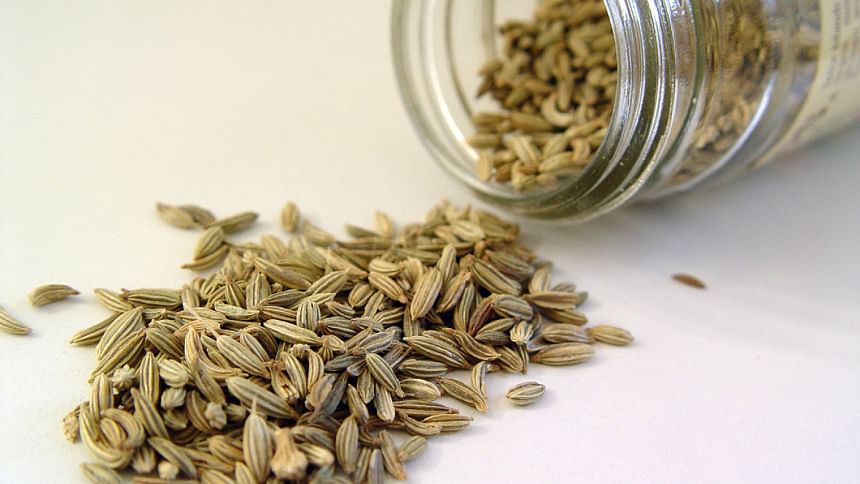Know your deshi ‘superfoods’: Fennel seeds

Fennel seeds look like cumin, but are greener. They are the dried seeds of the fennel herb. It is a common item frequently used in most South Asian kitchens.
However, aside from being used in food for its strong flavour, it is also revered in traditional medicine for a host of health benefits.
Fennel seeds are packed with nutrition like fibre, vitamin C, calcium, iron, magnesium, potassium and manganese.
Here are some common uses of fennel seeds:
Fennel seeds are known to suppress appetite, helping in weight loss.
Consumption of the seeds may help regulate blood pressure. The potassium in it helps control heart rate and BP.
It can reduce water retention by working as diuretic and stimulating perspiration.
It may help remove toxins and reduce risk of urinary tract infection.
Fennel tea is recommended by practitioners of traditional medicine for constipation, indigestion, irritable bowel syndrome and bloating.
These seeds may reduce symptoms of asthma and help clear sinuses. Many recommend fennel tea for bronchitis, congestion and cough too.
Fennel seeds have high concentration of vitamin A. In ancient India, it was consumed to improve eyesight.
The essential oil and fibre of the seeds may clean blood by flushing out toxins from the body.
When consumed, fennel has a cooling impact on the skin and gives it a healthy glow.
The seeds can provide relief in symptoms of menopause.
They supposedly have antibacterial properties and may reduce inflammation.
However, not much scientific experimentation has been conducted on the benefits of fennel seeds for human health. That's why the herb cannot replace medical treatment for any of the issues mentioned above. Too much of its consumption should also be avoided.

 For all latest news, follow The Daily Star's Google News channel.
For all latest news, follow The Daily Star's Google News channel. 




Comments